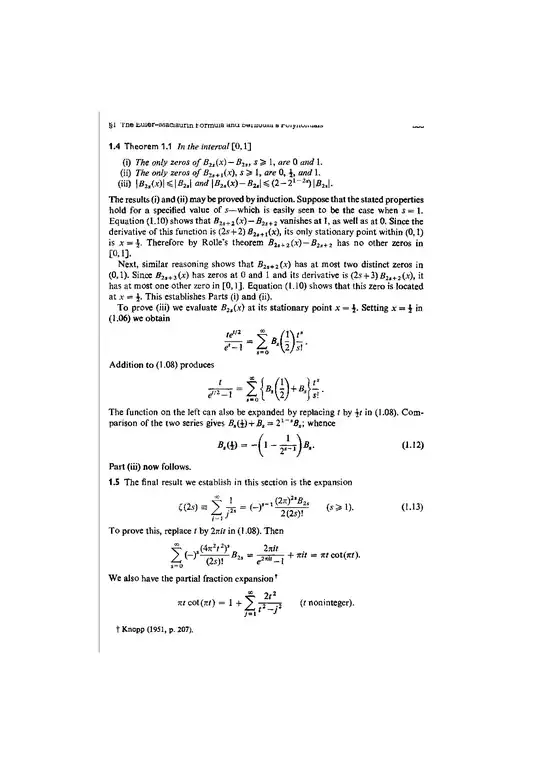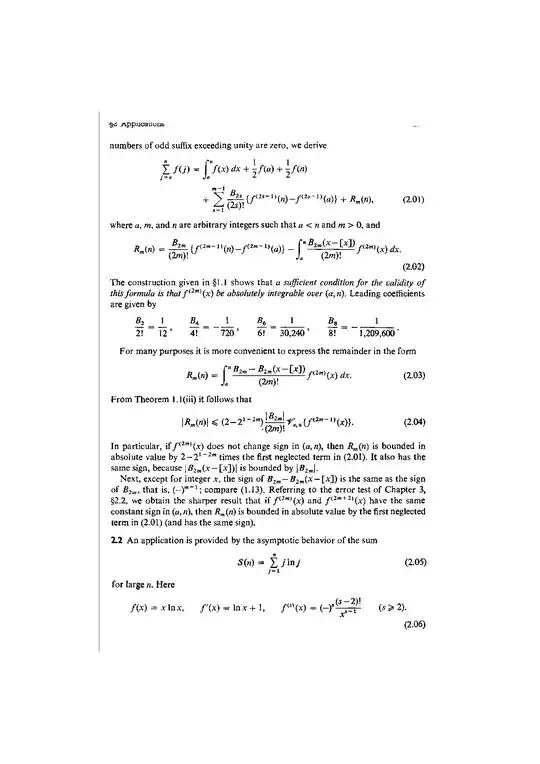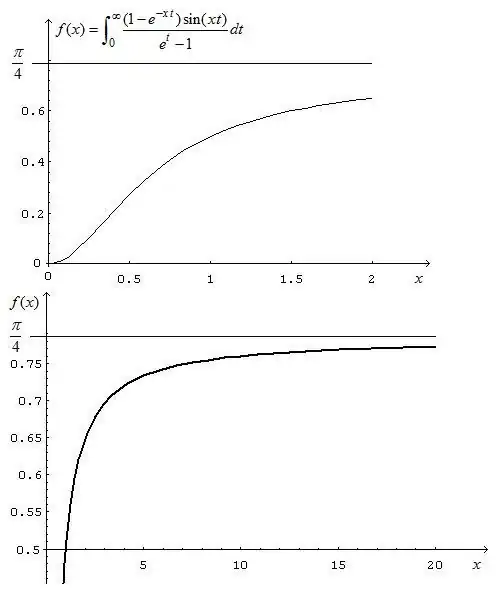This might lead to a solution, but at the very least, demonstrates just how delicate the estimate is.
We want to get a grip on
$$
S_n = \sum_{k = 1}^n \frac{n^2 + n - k^2}{(n^2 + k^2) ((n+1)^2 + k^2)}
$$
and show that it dies faster than $\frac{1}{2n}$. Let's be cavalier and drop the '$n+1$' business in the denominator, to make our lives simpler. Then, we're bounding
$$
S_n' = \sum_{k = 1}^n \frac{n^2 + n - k^2}{(n^2 + k^2)^2}
= \frac{1}{n^2} \left(\sum_{k = 1}^n \frac{1-(k/n)^2}{(1 + (k/n)^2)^2} + \frac{1}{n} \frac{1}{(1 + (k/n)^2)^2} \right)
$$
We can realize this as a pair of Riemann sums: the first (dominant) term is the right-endpoint Riemann sum of the decreasing function $g_1(x) = \frac{1-x^2}{(1 + x^2)^2}$, and the second term is the right-endpoint Riemann sum of $g_2(x) = \frac{1}{(1+x^2)^2}$. Both of these Riemann sums will be strictly smaller than their destined integrals. Now the fun part:
$$
\int_0^1 g_1(x) dx = \frac{1}{2}
$$
and so for large $n$, the dominant term is just just barely small enough to conclude. To make this a proof, one would have to find a lower bound for the error in the Riemann sum of $g_1$ along $[0,1]$, and compare this with the $g_2$ term. Thankfully, $g_1$ is actually concave on $[0,\sqrt{2}-1]$, and so there is some hope of taking a small subinterval in there and cooking up a lower bound for this error that defeats the $g_2$ term.
I did out the following. It didn't work the way I hoped, but I figured I would record the method here, if someone can improve it.
WolframAlpha computes the integral $\int_0^1 g_2(x) dx = \frac{2 + \pi}{8} \leq \frac{7}{10}$ and $\int_{2/5}^1 g_1(x) dx = 9/58, \int_{0}^{1/5} g_1(x) dx = \frac{5}{26}$. So,
$$
S_n \leq S_n' \leq \frac{1}{n^2} \sum_{k = \lfloor \frac{n}{10} \rfloor }^{ \lceil \frac{2 n}{5}\rceil } g_1(\frac{k}{n}) + \frac{C}{n} + \frac{7}{10 n^2}
$$
with $C = \frac{9}{58} + \frac{5}{26}$. (the above might be off by a term or two in the remaining sum) We truncate the Riemann sum for $g_1$ from $2/5$ to $1$ because $g_1$ isn't concave there, and we truncate from $0$ to $1/5$ so that we have a positive lower bound on $g_1'$ on $[1/5, 2/5]$.
Now, $g_1'(x) \leq - 1$ for $x \in [1/5,2/5]$; each of the vertical strip segments in the remaining part of the Riemann sum will underestimate the true integral of $g_1$ there by at least $\frac{1}{n^2}$. In total, the underestimation contribution to the total Riemann sum from such terms is at least $\frac{n }{5} \cdot \frac{1}{ n^2} = \frac{1}{5 n}$, and so we have shown that
$$
S_n' \leq \frac{1}{n}\left(\frac{1}{2} - \frac{1}{5 n} + \frac{7}{10 n}\right)
$$
Unfortunately this isn't strong enough. I don't think adjusting the endpoints will work: one probably has to make a more careful estimate using additionally the (nonconcave) segment $[2/5,1]$.
 ,
,
 Then we obtain
$$
f(n)=\frac{\pi}{4}-\frac{1}{4n}+h(n),\qquad |h(n)|\leq\frac{3^{3/2}-2}{32n^2}.
$$
From this
$$
f(n+1)-f(n)=\frac{1}{4n(n+1)}+H(n),\qquad |H(n)|\leq\frac{3^{3/2}-2}{16n^2}.
$$
It yields
$$
f(n+1)-f(n)\geq\frac{(6-3^{3/2})n-3^{3/2}+2}{16n^2(n+1)},
$$
which is positive if $n\geq4$. For $n=1,2,3$ it can be checked by hand.
Then we obtain
$$
f(n)=\frac{\pi}{4}-\frac{1}{4n}+h(n),\qquad |h(n)|\leq\frac{3^{3/2}-2}{32n^2}.
$$
From this
$$
f(n+1)-f(n)=\frac{1}{4n(n+1)}+H(n),\qquad |H(n)|\leq\frac{3^{3/2}-2}{16n^2}.
$$
It yields
$$
f(n+1)-f(n)\geq\frac{(6-3^{3/2})n-3^{3/2}+2}{16n^2(n+1)},
$$
which is positive if $n\geq4$. For $n=1,2,3$ it can be checked by hand.



